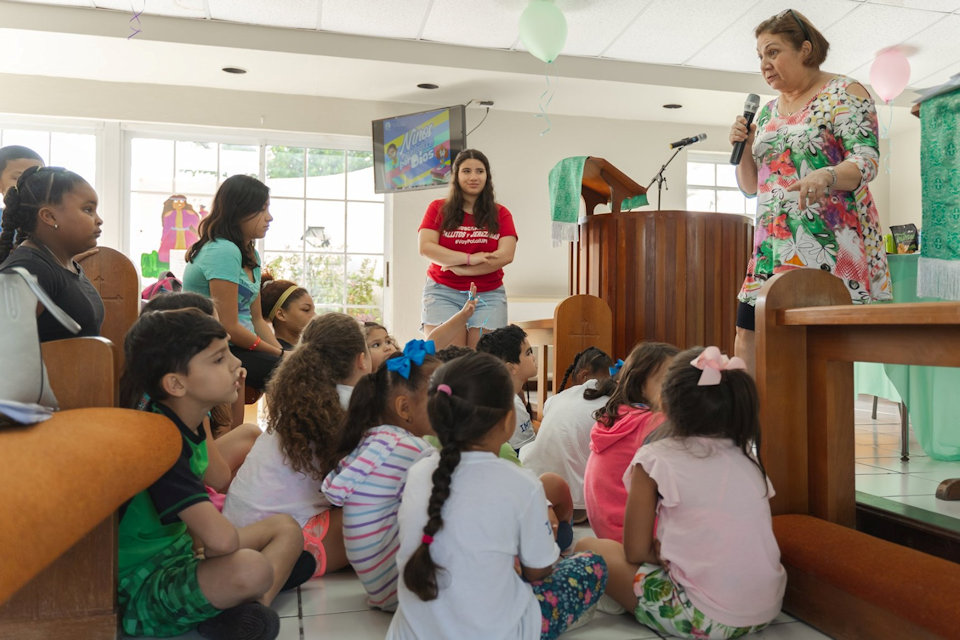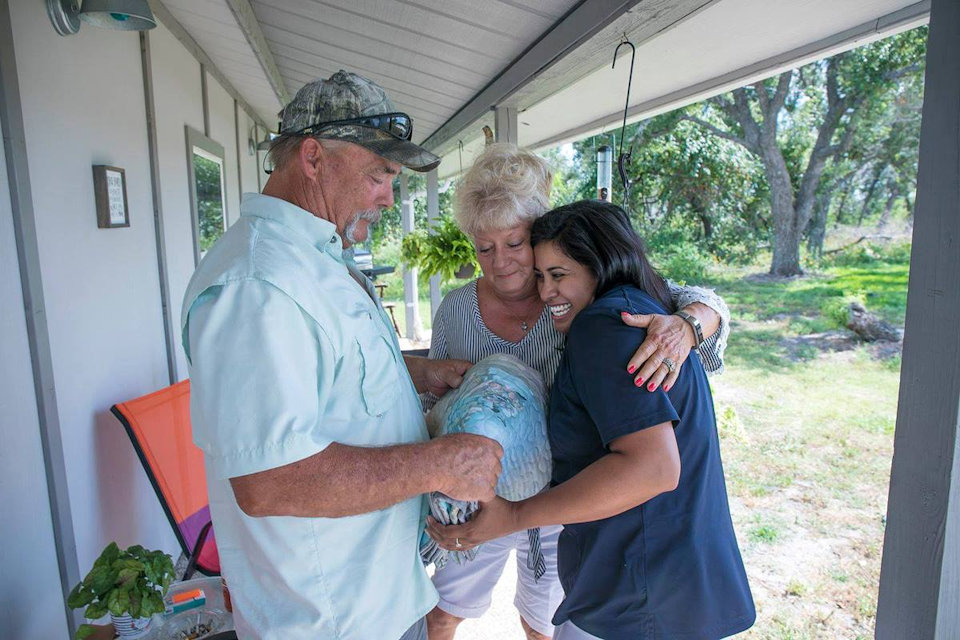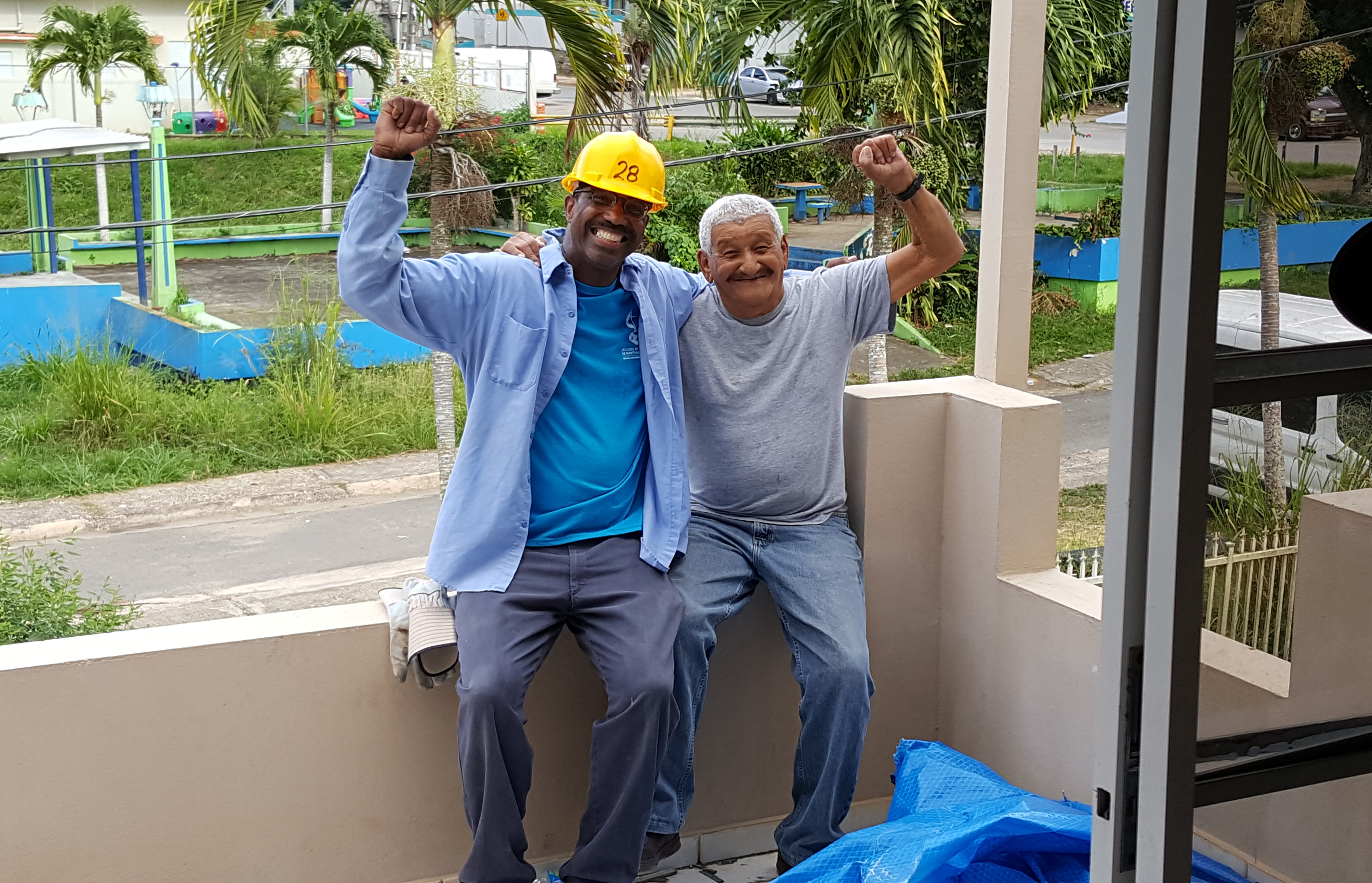First in. Last out. As UMCOR and UMVIM begin response to Dorian, they continue to bring help and hope to those recovering from storms named Maria, Irma, Harvey, and Michael.
JOHN W. COLEMAN
Eastern Pennsylvania Conference | UMCOR
As September’s Hurricane Dorian grazed Puerto Rico’s coast, residents were relieved to be spared an encore of the historic, widespread destruction they suffered two years ago from Hurricane Maria, on the heels of Hurricane Irma, both of which struck in September 2017.
Puerto Rico’s recovery has progressed slowly but steadily, thanks largely to the Methodist Church of Puerto Rico (Iglesia Metodista Puerto Rico) and the expertise, partnerships, and resources it has gained and shared in that arduous effort. Leading the way is its “social holiness” ministry, the aptly named ReHACE (Rebuilding Communities with Hope—i.e., Rehaciendo Comunidades con Esperanza).
ReHACE has deployed resources and work teams into 25 heavily populated areas, aided by the United Methodist Committee on Relief and United Methodist Volunteers in Mission. The two collaborative work areas of Global Ministries came to the MCPR’s aid in the wake of the storms. Of more than 250,000 homes reportedly damaged, they have helped repair over 320 that were uninsured and not served by FEMA, aiding struggling residents who had nowhere else to turn.
“We were in the storm for about eight hours. I lost more than half of my roof,” recalls survivor Jose Rivera. When he found a friend’s house and other nearby homes “totally gone,” he said, “It destroyed my heart.”
Others recall extensive damage to structures from severe winds and flooding, lack of food and water and a loss of electricity for many months because of a devastated antiquated power grid. More than 400,000 residents have left the island since the storm, and many who remain have suffered from illness and depression.
UMCOR foundations
UMCOR has provided crucial support in case management, along with ample funds and strategic planning assistance. It also trained over 200 local disaster response leaders. ReHACE’S executive director and former Global Ministries missionary, Glorymar Rivera Baez sees leadership development as essential for people to be better prepared for the likelihood of future disasters.
“The work should be done by knowing the real needs of our communities,” she said, “and by forming leaders trained to meet those needs.”
The MCPR has 100 churches and about a third of them were damaged by the storms. Yet, clergy and lay members have focused on helping their neighbors and providing assistance and hospitality to U.S. volunteers since the first teams arrived.
Since February 2018, more than 2,300 U.S. mission volunteers on 212 teams (as of August 2019) have provided well over 70,000 hours of labor to repair mostly homes.

ReHACE’s case managers identify, vet and report critical needs and conditions among hurricane-affected residents and families. Local and U.S. volunteers are deployed to worksites to respond to urgent home repair needs, while also offering emotional support to homeowners.
ReHACE hires local contractors as supervising foremen and bilingual translators to ease communication between English-speaking volunteers and their local coworkers and hosts.
Volunteers show love
“It still amazes me to see people coming from other places just to work here, just to show us the love of Jesus,” said Stephanie Acosta, a translator. “Seeing the before and after of the houses? That’s hope right there.”
Jose Rivera, Acosta and other residents, staff, and volunteers joined the work of a team that came from three churches in the Indiana Conference. The 19-member team split up to work on four homes, mostly scraping, painting, patching and sealing water-damaged walls and roofs and installing windows.
“Having the relationship with the Puerto Rican Methodist Church made everything easier,” said team leader Jennifer Rice-Snow of Muncie, Indiana. “The MCPR did so much of the set-up for our volunteering – selecting the homes, finding the foremen and translators, providing the food and lodging, organizing transport, coordinating the ongoing work from team to team, supplying all the materials for the work.”
To support ongoing recovery efforts in Puerto Rico, consider giving to U.S. disaster response or joining a volunteer team.
Rice-Snow praised the expertise, organization, patience, and care of everyone – ReHACE staff, foremen, translators, and lodging hosts. But many volunteers themselves also bond with one another personally during their week-long interactions.
Scott Szoke, of the Eastern Pennsylvania Conference, led a seven-member team from four churches in April. “We worked on two houses, mostly repairing and replacing doors, windows, and molded paneling” he reported. “We didn’t know each other; but we became closer by working together each day and sharing in conversations each night about ourselves, our personal journeys and how we came to know Christ. We learned we had a lot in common.”
Some UMVIM teams are remarkably diverse in race, ethnicity, gender, urban and rural backgrounds, political and religious ideologies, and age and skill levels. The Indiana team had college students and retirees, first-timers and veteran volunteers. Some teams also include members from other denominations or faiths.
Years of recovery ahead
The need is great for more UMVIM teams with skilled personnel, especially roofers. “Currently, there are 35,000 houses still covered with blue tarps,” reports UMCOR consultant Tymera Jackson, who helps UMVIM teams in the U.S. schedule their trips and fulfill requirements before they head to Puerto Rico.
Her counterpart at ReHACE, Belisa Miranda, coordinates reception, assignment, and resourcing of volunteers there. She began volunteering a week after Hurricane María struck, when “our resources were very limited and needs terribly immense,” she recalls.
“UMCOR’s diligence was above and beyond my expectations,” she said, lauding the agency for approving needed home repair and reconstruction grants. “But the major benefit to us is how UMCOR’s program impacted our people’s mental health,” she said, “especially those who were emotionally affected in so many ways by this traumatic experience.”

Miranda also gives ample praise to diligent, compassionate UMVIM teams, citing their many labors of love as “key to what we have accomplished as part of the body of Christ.”
“Rehabilitating Puerto Rico from Maria’s destruction will take up to a decade, and our support must be in it for the long-term,” said Tom Vencuss, mission and disaster response coordinator for the New York Conference. He coordinates UMVIM’s work in Puerto Rico for UMCOR.
“We’re going into our third year, and there may be a natural attrition of interest as new disasters claim our attention,” Vencuss explained. In fact, he said, work teams are still responding to destruction caused by other hurricanes, including Michael, Harvey, and Sandy, plus tornadoes in Oklahoma and wildfires in California, among other disasters.
Prepare for future
UMCOR is known for its long-term commitment to continue case management efforts long after other disaster response agencies have left the scene.
“We can rebuild our homeland together,” said MCPR Bishop Hector Ortiz. “We are grateful for The United Methodist Church’s support, especially for UMCOR and the volunteers who have come to help us recover. Over 4,000 of our people died from this tragedy, but we have actually saved lives, and now we have a comprehensive plan for full recovery.”
In fact, with UMCOR’s help, ReHACE has developed a community action plan and is promoting awareness to help residents better prepare for future hurricanes.
“They have emergency plans and more knowledge of community resources; so, they know what to do and where to go,” said the Rev. Greg Ellis, UMCOR’s program manager for U.S. Disaster Response. “And they’re rebuilding structures to current standards to better withstand storm conditions.”
“The Methodist Church of Puerto Rico’s response to survivors of Hurricane Maria has been miraculous, given the scope and scale of the damage and human suffering they endured,” said Catherine Earl, UMCOR’s.director of Disaster Response and U.S. Partner Relations. “This can only happen with vision, faithful leadership and a dedicated, highly capable staff. With UMCOR’s funding, training, and expertise, and with our Volunteers in Mission on the ground, this is just another example of the power of the United Methodist connection, and it’s amazing.”
Last Updated on November 9, 2023

